- Home
- Ward Wagher
Accidental Nazi Page 2
Accidental Nazi Read online
Page 2
The pain passed. He kept his eyes closed, and massaged his temples, hoping fervently that the brief spasm had truly been fleeting. Hearing the sound of a strange aircraft he opened his eyes again. A tri-motored propeller-driven airliner was approaching the field. Strange, he wasn't aware of any Junkers JU-52 aircraft still flying. In formation with the Junkers were five Focke-Wulf FW190 fighters. He had not heard of any air show scheduled for that day, and wondered where the vintage aircraft came from. This was unusual in Berlin.
Then he glanced around in shock. He was no longer at Templehof. Or more exactly, not the Tempelhof he knew. Oh, the terminal still stood, but it was incomplete, and did not have the patina of age. The walkway was now crowded with people, and he knew not how they arrived. They were dressed formally, the women in mid-calf length skirts, the men in suits with hats. His confusion deepened.
A collection of vintage Mercedes swept on to the tarmac, blood-red Nazi pennants fluttering from the fenders. The shock of fear settled in on Heinrich, and his mind began casting about for an explanation. As he watched, one wing of the Junkers dipped and dug into the ground. The aircraft cartwheeled across the airport in a ball of flame.
A young man standing next to him cried out. “Mein Gott, Herr Partieleiter! Not the Fuhrer; not now!” Heinrich Schloss's world had changed.
CHAPTER TWO
June 10, 1941 11:32 AM
Berlin Tempelhof
Around him Schloss heard cries of shock and sorrow as the smoke and flames billowed from the wreckage of the Junkers airliner. He felt his own shock as he struggled to come to terms with the sudden change in his world. He glanced down in surprise at the clothing he wore – the brown suit bedecked with badges, the black leather belt around his coat, and the black leather riding boots. It was strange the way his trousers bloused out before being tucked into the boots.
The young man standing next to him, also wearing the brown uniform he had noticed, touched his arm. “Herr Partieleiter, what shall we do?”
That was precisely the question Schloss asked himself. What he wanted to do was to run screaming from the airfield as far and as fast as he could. Was he dreaming? He thought not – this was too real. There was not the tunnel vision characteristic of dreams. What on earth had happened? Either the world had changed or he had been transported into Nazi Germany. And the young man standing next to him was obviously awaiting a decision. Herr Partieleiter? That had to have been Bormann, although Martin Bormann's title had been Reichsleiter.
The thing to do was to buy some time to think, Schloss considered. He turned to the young man. “We should get back to the office quickly.”
“Jahwohl, Herr Partieleiter,” the young man said. He immediately turned and began making his way towards the terminal. Schloss followed.
As they pushed through the crowds, several people called out to him. “Herr Partieleiter, what has happened?”
Since Schloss had no idea what had happened either, he was content to reply by a grimace and a shake of the head. He was very frightened, not because of what he didn't know, but for what he thought he did know. In a brief moment of time, he had skipped forty years into the past. Or was it into a past? This was Nazi Germany, but now Hitler was dead. The portents were confusing to his historian's sense of order.
The young man led him to a car parked by the curb. The front bumper was festooned with the requisite Nazi flags, although the car was less grandiose than the Mercedes which had pulled on to the airfield. Schloss was not a connoisseur of old automobiles, and so was unfamiliar with this one. The young man opened the back door for him, and then trotted around to the driver's seat.
The less imposing automobile must have been recognizable. They were passed through several checkpoints along the way to central Berlin without stopping. Schloss carefully studied the buildings and the streets they passed, as his mind grappled with the change. Everything seemed consistent with the pictures of wartime Berlin he had studied over the years. And why did he have this feeling of coming home? Yes, Berlin was his home, but not this Berlin.
The car eased to a stop in front of an imposing building, and the driver jumped out to trot around to his door. Schloss stepped out of the car and looked up at the building. A sign above the doors proclaimed National Socialist German Workers Party – National Headquarters. His driver leading the way, Schloss walked into the building. As he walked to the doors, the guards at each door jumped to attention and rendered the Nazi salute. As they barked Heil Hitler he held his hand up to return the salute and nodded. And with Hitler dead, how would they replace that salute? He encountered several men in the lobby who tried to interrupt his journey with questions about the event at the airport. Word had already reached central Berlin.
He waved the people off as he followed the driver into the elevator. The operator moved the lever to start the car moving upward. He heard a stifled sob and looked over at the elevator operator. Tears streamed down the man’s face as he looked back as Schloss.
“I just cannot believe it, Herr Partieleiter. The Fuhrer is dead.”
“It is a tragic day for Germany,” Schloss replied.
The driver shook his head. “This is just about the last thing I would have expected to happen.”
“You must keep your wits about you,” Schloss said. “We have a long day ahead of us.”
“But what are we going to do, Herr Partieleiter?”
Schloss shook his head. “Right now I am the most confused and frightened man on the face of the Earth.” Well that was the truth, anyway. “We will do what we need to do. Germany needs us.”
“Yes, Herr Partieleiter.”
The elevator halted at the fifth floor and the two men stepped into the hallway. The dim lighting was in contrast to the bright sun outside, but was better suited to the mood that was rapidly enveloping Berlin. Schloss was certain the news of Hitler's death would spread like lightning about the city.
They stepped through the double doors with the sign Office of the Party Leader – Heinrich Schloss on on the door. Schloss shook his head slightly. That settled one of the questions he had looming over him. He wondered what had happened to Bormann. It looked like Schloss was in the hot seat.
The offices were in chaos. Multiple people called to him, and the smell of fear was heavy in the air. A succession plan was something nobody had thought of, or at least spoken about. If there was fear, panic was not far behind.
“Herr Partieleiter, the Deputy Fuhrer is on the phone.”
That meant the next decision was made for him. “Let me get to my office and I will speak with him.”
He followed the driver through another set of double doors into a palatial office. He marched over to the desk. The phone jingled and the driver picked it up.
“The Party Leader's office. Special Assistant Karl Rainer speaking, Sir.” There was a pause. “Very well, he has just arrived.”
That solved one problem. He now knew the name of the young man who drove him from Tempelhof.
He held out the phone to Schloss. “The Deputy Fuhrer, Sir.”
“Thank you, Karl”
He took the phone. “Schloss.”
“It's Rudolf, Heinrich. Whatever are we going to do?”
Okay, that gave him more information. The Deputy Fuhrer was probably still Rudolf Hess. In the histories Schloss was familiar with, Hess had flown to Britain in a hair-brained attempt to negotiate an end to the war. Apparently it had not happened yet, or would not happen. Hess had been gradually supplanted by Martin Bormann, but that had not happened here either. Where was Bormann?
“We must not panic, Rudolf,” Schloss said. “The nation depends upon our keeping our wits about us.”
“But without Hitler, will the people stay with us?”
“I cannot answer that question, Rudolf.”
“And Barbarossa is getting close. We must stop it.”
Schloss took a deep breath and looked down at the desk. A desk calendar lay open. It was covered with carefully writte
n notes in his handwriting. The top of the page was imprinted with the year – 1941. An entry for June 10 noted Tempelhof: Fuhrer returns from Bavaria. He quickly turned a couple of pages and saw the entry for June 22. The Beginning.
The first of many decisions was right in front of him. He knew what he wanted to do… what he had to do. The historian in him argued vociferously that he should take the decision. He felt like he was on the edge of a precipice.
“Rudolf, first of all, make sure your people are settled down. I need to do the same here. We will need to meet; probably at the Reich Chancellery. Who is in town?”
As he talked he reviewed what he had just said. That last question was very smart. It would give him a view of who was who in this version of Nazi Germany.
“Himmler, of course, and Goering. Goebbels is on the way back from Munich. Most of the General Staff is in Poland on a final inspection tour before the project kicks off.”
Schloss felt like he was on a tight-rope blindfolded. Things were moving fast, and he had not the foggiest idea what he was doing.
“Back to Barbarossa,” Hess continued. “You know we have talked about this. Now is the chance to scuttle it. You talked the Fuhrer into canceling Sea Lion, and you even named that operation.”
“Can we sustain that decision?”
“I am sure we can slow it down. Perhaps if I sent a message from the Fuhrer's office....”
“Would that work? How would Himmler and Goering react?” Schloss asked. “Not to mention everybody else?”
“Goering will go with whatever the group decides. Now, Himmler will not be happy. Von Ribbentrop is concerned about the operation.”
“So you suggest we just act and deal with Himmler later?” Schloss pushed.
“Yes, yes. That is what we must do,” Hess insisted.
“Rudolf, what are you getting ready to do to me?” Schloss asked.
Historically Hess had turned out to be a bit of a nut. By the late 1930's he was no longer taken seriously by the party leadership. What was his personality here? Schloss thought he sounded slightly loopy.
“Listen, Heinrich, I know this is dangerous. But if we don't stop this invasion, it will mean the downfall of the Reich. Nobody has ever gotten themselves involved in a ground war in Russia and survived. Look at what happened to us the last time around.”
The man had a point, Schloss conceded to himself. His mind presented him an image of him and several historian friends in his living room debating about how the war might have turned out differently. Many of those conversations revolved around the Russian invasion. Barbarossa. Here was his chance to experiment – with the lives of millions. And with a shock he remembered the Jewish Question. Perhaps he had been placed here by blind physical forces to achieve something good. If he could prevent the deaths of millions, including the Jews....
“Are you still there, Heinrich?”
“Yes. Yes, go ahead and put together a directive putting Barbarossa on hold. I think, under the circumstances, everyone would agree that was a good idea. Then we can work on scuttling the whole thing.”
“Good. I knew you would agree,” Hess said. “Let me get started on that.”
No sooner had Schloss hung up then a call came in from Heinrich Himmler.
“Why did you leave the airport?”
“And I did not have a very good morning, myself, Herr Reichsprotektor.”
“Certainly better than the Fuhrer had, Herr Partieleiter. I was told you left quickly right after the crash.”
“I certainly did. I thought I should be at the office as soon as possible.”
“You were not happy with our Fuhrer of late,” Himmler said. He had an oily voice that reminded Schloss of a serpent.
“What are you suggesting, Herr Reichsprotektor?” Schloss heard his voice grow cold as ice. He was frightened about what the head of the SS might do. But he also grew angry at the insinuation in the other man's voice. “Perhaps you ought to investigate the cause of the crash rather than tossing those verbal challenges to those you work with.”
“I am merely investigating all possibilities, Herr Partieleiter.”
“May I assume you have people investigating the Junkers?”
“But, of course.”
“Then may I suggest, with all possible respect, that you meet me at the Reich Chancellery. We need to agree on a course of action and make a statement to the nation. Quickly.”
There was a pause. “You are right, of course. To be honest I am not helping the investigation here at Tempelhof. I believe people are sufficiently nervous.”
Schloss rolled his eyes and looked at the ceiling. He glanced over to see Rainer stifling a grin.
“Very well, Herr Reichsprotektor. Shall I see you at the Chancellery soon?”
“Agreed.” Himmler hung up without another word.
Schloss looked up at his driver. “Who do we have in the building we can trust unquestioningly?”
Rainer looked surprised. “I am not sure I understand what you have in mind, Herr Partieleiter.”
“Let's just say that we are entering a time of great turmoil and I intend to live through it.”
Schloss watched as the younger man sifted the possibilities in his mind. It did not take long.
“I think I understand,” Rainer said.
Schloss studied the younger man for a few moments. “Yes. I believe you do.”
It seemed as though Schloss stood to one side and critiqued his performance. In this world people ruled by intimidation as well as by violence. He believed he was being sufficiently intimidating.
“How soon do you need to leave for the Chancellery, Herr Partieleiter?”
“Ten minutes. No more.”
Rainer quickly exited the room and Schloss began studying the contents of the desk. He viewed each item as a clue to his current state. He opened the desk drawers, one after another. In the middle left drawer was a shoulder holster and a Luger pistol. After a moment's thought, he stood up and pulled his coat off. After buckling the holster, he shoved the gun into the leather pocket, and put his coat back on. There was no penalty in being prepared.
A heavy, deep credenza occupied the wall behind the desk. It was almost level with the window sill. The drawers yielded little beyond the normal accumulation of an office worker, but behind the two center doors crouched a steel safe. Schloss pondered the safe and wondered if he would ever be able to discover the combination. That was a problem for another day.
As Schloss and Rainer stepped out of the party headquarters, Schloss became aware of the efficiency of his assistant. In addition to his Opel Admiral – he had taken the trouble to look at the name plate on the car – were two other cars. One was in front and the other behind. Rainer had also procured a dozen armed men, who covered the two of them as well as the cars.
The news of Hitler’s death had spread rapidly and the populace was streaming onto the sidewalks. Paperboys hawked the special editions announcing the death of the Fuhrer. The publishers had moved with alacrity. As the cars accelerated down the street, Schloss studied the Berliners and noted the anguish on their faces. Whatever else he could say about the Nazis, Schloss thought, they had carefully cultivated the cult of the Fuhrer. Whether or not the people truly liked him, Hitler had become a anchor to the nation, and the people were adrift.
CHAPTER THREE
June 10, 1941 1:10 pm
Reich Chancellery, Berlin
The Reich Chancellery was imposing. Schloss had seen it in pictures, the Russians of course having razed the heavily damaged building after the fall of Berlin. Albert Speer had constructed it rapidly in 1938 and 39. It had thus far escaped damage from the British bombers that flew over the city at night. The three cars moved along Voßstrasse and stopped in front of the edifice.
One of the guards Rainer had recruited was driving and Rainer jumped out of the front passenger seat to open the back door for Schloss. As he stepped out of the car an SS Captain stepped up to him.
“Herr P
artieleiter, if you could have your vehicles moved around the block please.” He had not phrased it as a request.
Schloss stared at the Captain until he finally burned through the arrogance. The officer seemed to wilt.
“I believe we will leave the automobiles here, Captain.”
The SS captain hesitated, then spoke. “As you wish, Herr Partieleiter.”
Schloss brushed past him and walked towards the entrance of the chancellery.
“I thought the SS captain was going to wet himself,” Rainer murmured.
Schloss glanced over at him. “Some of them have not learned their position in life. I will not be trifled with.”
Rainer paled, and his mouth snapped shut. The man was clearly frightened of him.
Schloss was amazed at how easily he was assuming the role of the German Nazi party leader. He had been carrying on a running commentary in his head since leaving Tempelhof. So far he seemed to be making good decisions on a paucity of information. The basic required characteristics were arrogance and ruthlessness. It seemed he carried that reputation here.
They entered through the Court of Honour, past the bronze statues. An SS colonel stood waiting for them.
“Where would the Partieleiter wish to go?”
Schloss reached into his lode of historical trivia and dredged up an item. “The Reichsprotektor, Goebbels, Goering and Hess will be meeting with me. I suppose we should meet in the Fuhrer's great study.”
The colonel hesitated, perhaps remembering previous encounters with the party leader. Schloss didn't know.
“Jawohl, Herr Partieleiter. If you will follow me, please.”
Rainer pointed to two of the men accompanying them, indicating they should stay in the lobby. He then fell back into step with Schloss. Schloss wordlessly followed the colonel, and glanced over at Rainer with a raised eyebrow. Rainer clearly did not know how to respond, and so faced straight ahead.

 The Mountains of Montora (The Chronicles of Montora Book 1)
The Mountains of Montora (The Chronicles of Montora Book 1)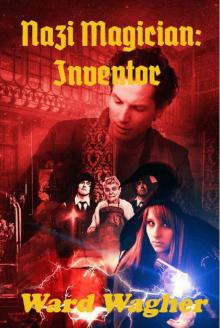 Nazi Magician: Inventor
Nazi Magician: Inventor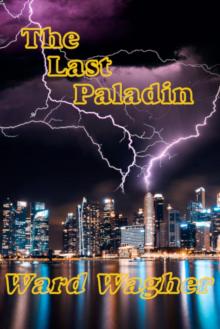 The Last Paladin
The Last Paladin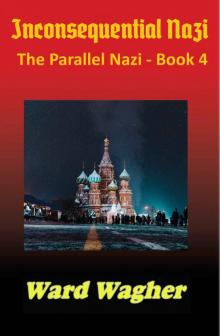 Inconsequential Nazi
Inconsequential Nazi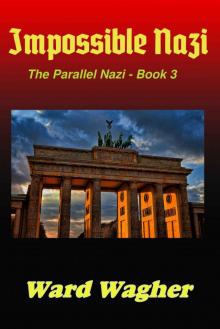 Impossible Nazi
Impossible Nazi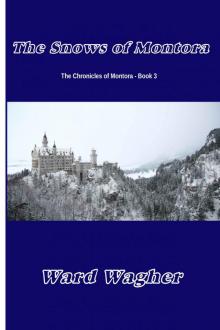 The Snows of Montora (The Chronicles of Montora Book 3)
The Snows of Montora (The Chronicles of Montora Book 3)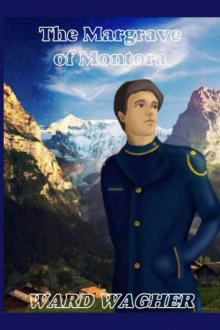 The Margrave of Montora (The Chronicles of Montora Book 2)
The Margrave of Montora (The Chronicles of Montora Book 2) Gravity Rising (The Parallel Multiverse Book 2)
Gravity Rising (The Parallel Multiverse Book 2)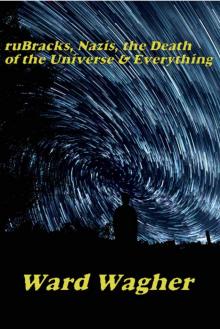 ruBracks, Nazis, the Death of the Universe & Everything (The Parallel-Multiverse Book 1)
ruBracks, Nazis, the Death of the Universe & Everything (The Parallel-Multiverse Book 1)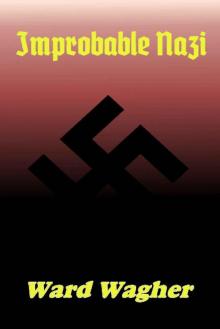 Improbable Nazi (Parallel Nazi Book 2)
Improbable Nazi (Parallel Nazi Book 2)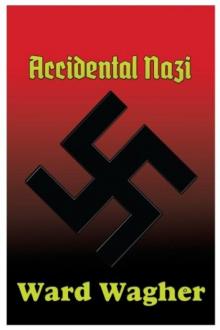 Accidental Nazi
Accidental Nazi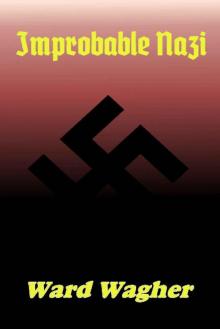 Improbable Nazi
Improbable Nazi